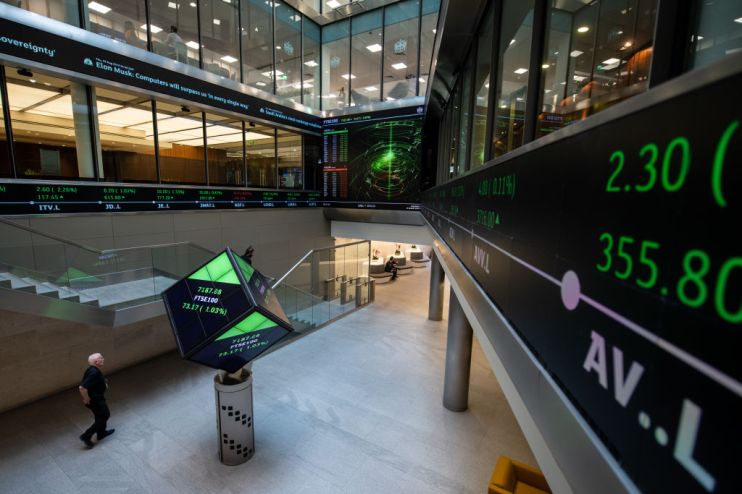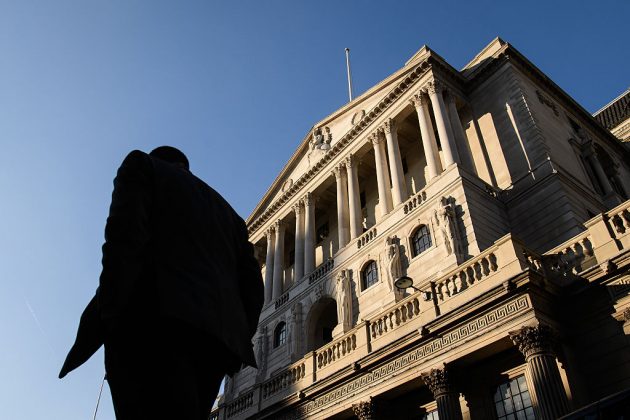Will 2021 be the FTSE 100’s year?

The FTSE 100 has been playing catch-up for most of this year. After the historic market crash in the spring, the UK’s main stock index – which lacks glittery tech names – has lagged behind.
The US’s S&P 500 climbed about 12 per cent from the start of the year to 1 December, while Germany’s Dax was roughly flat. Britain’s FTSE 100 was down around 16 per cent, however, with Brexit adding to the pressure.
It is being hammered again today, along with global stocks, as investors worry about the short-term health of economies.
But things could change next year. Investors are asking themselves ahead of 2021 whether vaccine rollouts and a rebound in global growth will make the FTSE a star performer.
Here are some key issues that will be driving UK stocks next year, for good or ill.
A vaccine-driven FTSE 100 rebound in 2021?
The Bank of England has said the roll out of vaccines in the UK improved the outlook next year, while markets have cheered the progress so far. Some economists said they could lead to much more rapid growth than originally expected.
This is good news for the FTSE 100 in 2021, analysts say. It is full of firms from sectors that were hit hard by coronavirus: banking, industrials, retail, travel.
Generali Investments said it liked UK stocks because of the expected stronger growth.
Its 2021 outlook said: “We maintain our preference for value and cyclicals sectors and countries.” It added that it fancied “financials, energy and materials, in particular”.
UBS said it is “bullish on the UK,” predicting a rise of 13 per cent in the FTSE by the end of 2021 to 7,200. Consultancy Capital Economics said the FTSE 100 could even hit 7,500 next year from its current level of around 6,500.
However, there is still a great deal of uncertainty about the future path of the economy, with fresh lockdowns and disruption posing a major threat.
Will dividends return to boost the market?
Another factor analysts expect to boost the FTSE 100 is the restarting of dividend payments by firms, particularly banks.
The Bank of England lent on banks to stop payouts in the spring. It said they should reserve capital for lending. But it has since given them the green light to resume.
Analysis by broker AJ Bell showed that 53 current of former FTSE 100 members cut, deferred or cancelled more than £37bn of dividend payments in the calendar year 2020.
But it said 15 firms have now returned or declared their intention to return to the dividend list for the 2020 fiscal year.

Is Brexit good or bad for UK stocks?
On top of the worst economic crash in 300 years, FTSE 100 investors have also had to contend with Brexit. Talks are ongoing, with a final decision expected soon.
The UK’s official economic forecaster said no deal would knock two per cent off the economy in 2021. And the Bank of England has warned of financial volatility and disruption.
Nonetheless, a no-deal Brexit would also hit the pound. Analysts said this is likely to benefit the FTSE 100 in 2021 as it boosts the overseas earnings of FTSE firms.
Either way, “the UK’s 2021 Covid bounce-back will be dampened by Brexit as barriers to trade increase and investment wanes,” said Seema Shah, chief investment strategist at Principal Global Investors, in a note to clients.
Shah said this should take sterling to “more reasonable levels”. She added it “may be a good opportunity to take advantage of the UK’s relatively cheap valuations”.
Will the tech rally survive?
A key question for the FTSE 100 in 2021 is whether investors will move from “growth” stocks such as the big US tech names Amazon and Google towards “value” stocks, including banks and industrials.
Some analysts have said the tech firms will struggle to live up to market expectations as normal life resumes. But others argue the coronavirus pandemic has caused a major shift.
Laith Khalaf, financial analyst at AJ Bell, said DIY investors that use the platform think tech growth is here to stay, according to an internal survey.
“Just over half of investors expect technology stocks to continue on their winning run next year,” he said. He added that only one in five expect “a reversal of fortunes for the sector”.